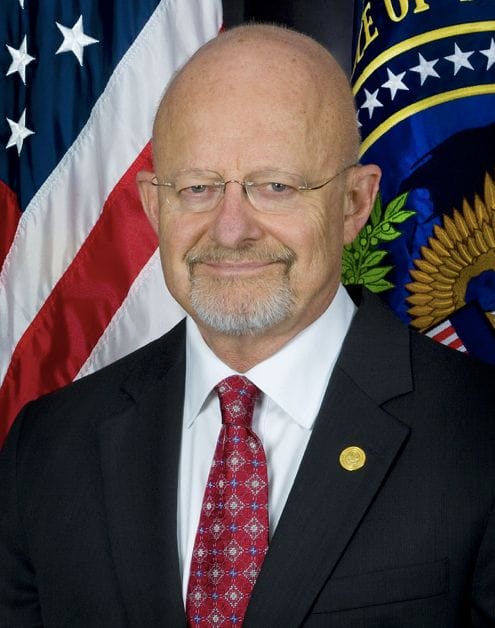The following is the 21st in a series of excerpts from my New York Times bestseller “Stonewalled,” which recounts the government intrusions of my computers. More excerpts to follow. Links to previous excerpts are below.
If Snowden leaks, it’s a crime. But if the administration leaks to implicate Snowden, it’s a virtue? In other words, government leaks are okay as long as the leaks flow in the right direction.
Snowden’s story isn’t black-and-white. He may have indeed validated national security rules and hurt the country. At the same time, he may have believed himself a patriot and also done an important service in exposing potentially improper and overreaching behavior by the U.S. government. The scenarios aren’t mutually exclusive. Surely Snowden doesn’t see himself as a traitor. To date, there’s no evidence that he peddled information to enemies of the United States or anyone else. There’s no evidence that he stole the information for personal financial gain. Quite the opposite: he gave it to the public, free of charge, at great personal peril, as if he has incredible conviction and belief in the importance of what he’s revealing.
“Even if you’re not doing anything wrong you’re being watched and recorded,” Snowden said in an interview with the Guardian. “The public needs to decide whether these programs or policies are right or wrong.” Snowden has given up a comfortable life in Hawaii and a six-figure salary. “I’m willing to sacrifice all of that because I can’t in good conscience allow the U.S. government to destroy privacy, Internet freedom and basic liberties for people around the world with this massive surveillance machine they’re secretly building.”
Many in Congress assist the administration’s diversionary plan. They don’t treat Snowden’s revelations as deserving of scrutiny. Instead, it’s how did a guy like Snowden get his hands on all those secrets? Senator Feinstein announces a proposed legislative fix to prevent con- tractors like Snowden from handling highly classified technical data.

Meantime, no sanctions are proposed against Clapper for his mis- leading testimony. And nobody seems to think it’s odd that he’s trusted to spearhead efforts to address concerns over the very programs about which he misled Congress. The AP reports that Clapper’s new plans include “a sweeping system of electronic monitoring that would tap into government, financial and other databases to scan the behavior of many of the 5 million federal employees with secret clearances, current and former officials.” Nobody seems to notice that, if anything, the administration is ramping up, not tamping down, its controversial War on Leaks.
Allowing Clapper and other government officials to be in charge of solving their own surveillance controversies is like inviting the fox to guard the henhouse. Except the fox is also getting the keys to the henhouse and the recipe for chicken fricassee.
In a fictitious world, one can imagine a meeting in which any member of Congress calling for Clapper’s head gets a closed-door visit from Clapper or his team. They slide a file bearing the name of the member of Congress or someone close to him across the desk, J. Edgar Hoover–style. The file contains materials surreptitiously gathered under the auspices of a government leak investigation or surveillance program. The member of Congress opens the file. Perhaps his eyes flicker. Maybe his face becomes white. The materials are very . . . per- sonal. The imaginary Clapper rubs his forehead with his four fingers. No words are spoken because none are necessary. The file is closed and Clapper drags it back across the desk, never to be spoken of again. Unless necessary. Suddenly the member of Congress is no longer out for Clapper’s head.
Or here’s another fictitious premise. CIA director Petraeus de- viates from the Obama administration’s official line on Benghazi. Somewhere in a private room, a small group of government operatives culls through data to find out who Petraeus has been emailing and calling. Any skeletons in that closet? A review of his file reveals some unseemly contacts with his former biographer. That information could come in very handy.
To be continued…
[hr]Read excerpt #1 here: The Computer Intrusions: Up at Night
#2: Big Brother: First Warnings
#3: The Computer Intrusions: Disappearing Act
#4: The Incredible, Elusive “Verizon Man”
#5: I Spy: The Government’s Secrets
#6: Computer Intrusions: The Discovery
#7: Notifying CBS About the Government Computer Intrusions
#8: The MCALLEN Case: Computer Intrusion Confirmed
#10: Revelations in the Government Computer Intrusion
#12: Obama’s War on Leaks
#13: The Computer Intrusions Become Public
#14: The Govt. Computer Intrusions: Word Spreads
#15: My Computer Intrusion and the National Connection
#16: URGENT dispatch
#17: Clapper’s False Testimony
#18: Government Spying First Revealed
#19: How the FBI Missed the Boston Marathon Bombers
#20: The media operation against Snowden and the government computer intrusions



Error: validated should be violated
Sharyl,
Your excellent article clearly exemplifies two tiers, “(1)If Snowden leaks, it’s a crime. (2) But if the administration leaks to implicate Snowden, it’s a virtue? In other words, government leaks are okay as long as the leaks flow in the right direction.”
We have learned here of the alleged crime of leaking and the Government’s instinctive, reactive (knee jerk) response by also leaking in order to implicate and defame the leaker.
What if a companion tier exists … a tier that is all about protecting the Government’s inherent ability to, with impunity, manipulate and monetize its command and control of the Justice process for profit? I encourage your patience and curiosity. In my mind, a prime example is the old Inslaw/Promis matter wherein the U.S. Justice Department stole critical, revolutionary software, (insiders) monetized it, and used the Government’s inherent powers to conceal and cover up crimes all-the-while bankrupting and besmirching a legitimate and innocent enterprise and its principals. Therefore, the intent and purpose (as in Snowden Et. al.) is to control the flow of propaganda and cover the Government’s criminal conduct.
So in addition to the alleged crime of leaking and the Government’s instinctive, reactive response by leaking to implicate and defame the leaker, we propose that the “Monetization of the Command and Control of the Justice Process” is also a companion and insidiously pervasive tier with the Government and the Justice Department at the nexus. For example … symbiotic relationships, cross fertilization, and monetization machinations between Justice, The Defense Department and the Military Industrial Complex (think $21T missing), Campaign Finance and Individual legislators’ corrupt conduct all argue for the importance of seriously considering the third tier argument as outlined above. Were Justice to interrupt and interdict this symbiosis, a monetary cornucopia of corruption and the Deep State’s existence would be significantly threatened, impeded and imperiled. Snowden Et. al. have disrupted the processes at nexus levels hence the Government’s instinctive, reactive, response to leaks.
As an aside, another example that comes to mind like Inslaw/Promise, is the Government’s rampant and unfettered civil forfeiture and seizure of private property. And … currently … there is in embryo another, similar Inslaw/Promis matter waiting in the wings to
either be exploited by the Goodfellas or uncovered and reported by ….
Best wishes,
Wayne L. Wickizer – MSAJ
Also known as “The Ole’ Buzzard”